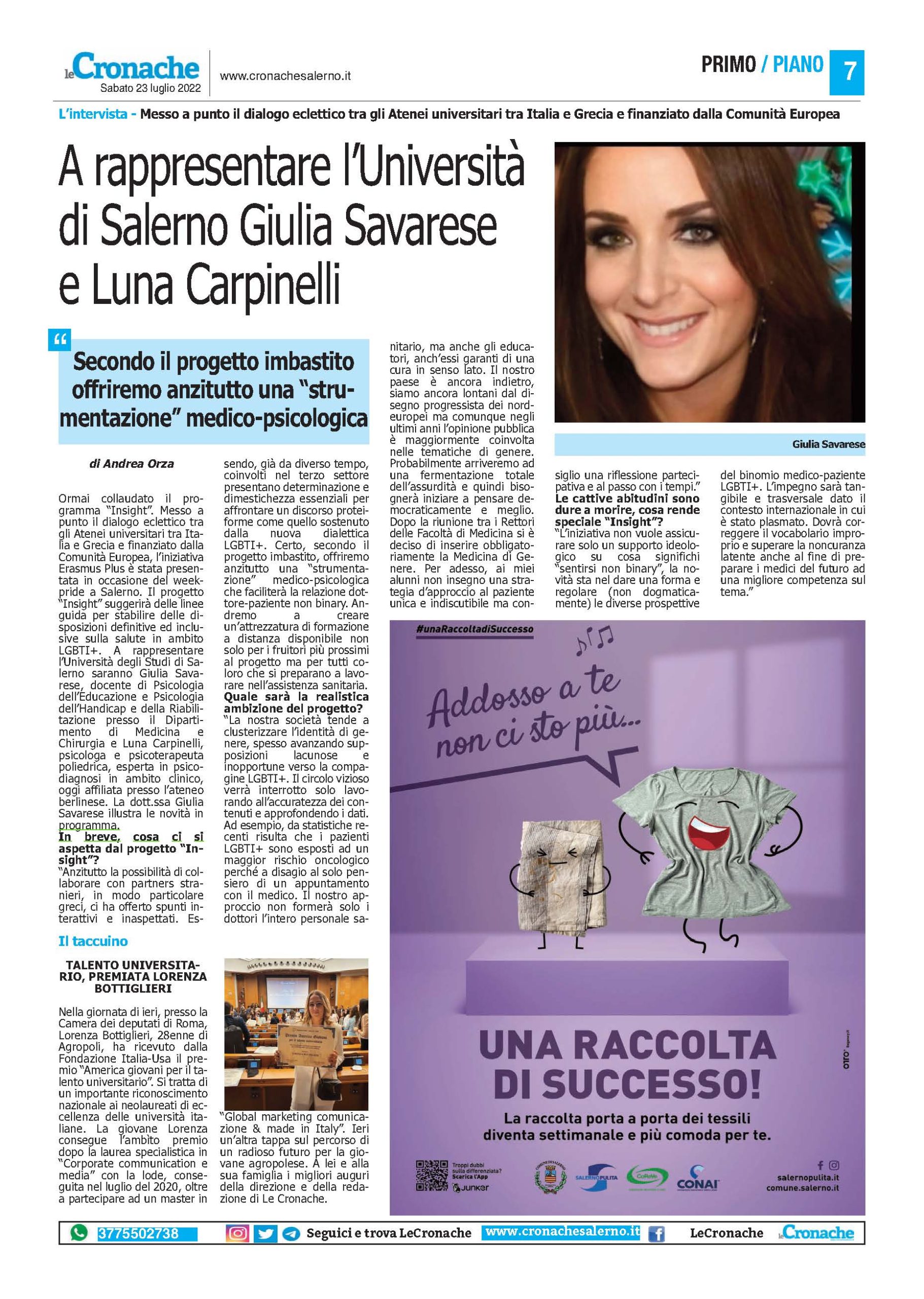English translation from the original article in “LeCronache” – 23.07.2022
The interview – Eclectic dialogue between universities of Italy and Greece put in place and funded by the European Community
Of Andrea Orza
By now the proven “Insight” program set up an eclectic dialogue between universities of Italy and Greece and funded by the European Community, the Erasmus Plus initiative was presented at the weekend-pride in Salerno.
The “Insight” project will suggest guidelines for establishing definitive and inclusive health provisions in LGBTI+ settings. Representing the University of Salerno will be Giulia Savarese, professor of Educational Psychology and Psychology of Handicap and Rehabilitation in the Department of Medicine and Surgery, and Luna Carpinelli, a multifaceted psychologist and psychotherapist, an expert in psychodiagnosis in clinical settings, now affiliated with the berliner athenaeum. Dr. Giulia Savarese illustrates the new features on the program.
In short, what do you expect from the Insight project?
“First of all, the opportunity to collaborate with foreign partners, especially Greeks, has offered us unexpected interactive insights. Being, for quite some time already, involved in the third sector they present determination and familiarity essential to deal with a protei-form discourse such as the one advocated by the new LGBTI+ dialectic.
Certainly, according to the project we have set up, we will first of all offer medical-psychological “instrumentation” that will facilitate the non-binary doctor-patient relationship. We are going to create a distance learning equipment available not only to the project’s immediate users but to all those preparing to work in health care.
What will be the realistic ambition of the project?
“Our society has a tendency to clusterize gender identity, often making terse and inappropriate assumptions toward the LGBTI+ composite. The vicious cycle will only be broken by working on content accuracy and deepening the data.
For example, recent statistics show that LGBTI+ patients are at increased cancer risk because they are uncomfortable at the mere thought of a doctor’s appointment. Our approach will not only train doctors the entire health staff, but also educators, who are also guarantors of care in a broad sense. Our country is still behind, we are still far from the progressive design of the northern Europeans but nevertheless in recent years the public is more involved in gender issues. We will probably get to a total fermentation of absurdity and then we will have to start thinking democratically and better. After the meeting between the Rectors of the Faculties of Medicine, it was decided to include Gender Medicine compulsorily. For now, I don’t teach my students a unique and unquestionable patient approach strategy but recommend participatory and up-to-date thinking.”
Bad habits die hard, so what makes “Insight” special?
“The initiative is not just about ensuring ideological support on what it means to “feel non-binary,” the novelty lies in shaping and regulating (not dogmatically) the different perspectives of the LGBTI+ doctor-patient pair. The effort will be tangible and cross-cutting given the international context in which it is shaped. It will have to correct improper vocabulary and overcome latent nonconcern also in order to prepare future physicians for better competence on the topic.”



